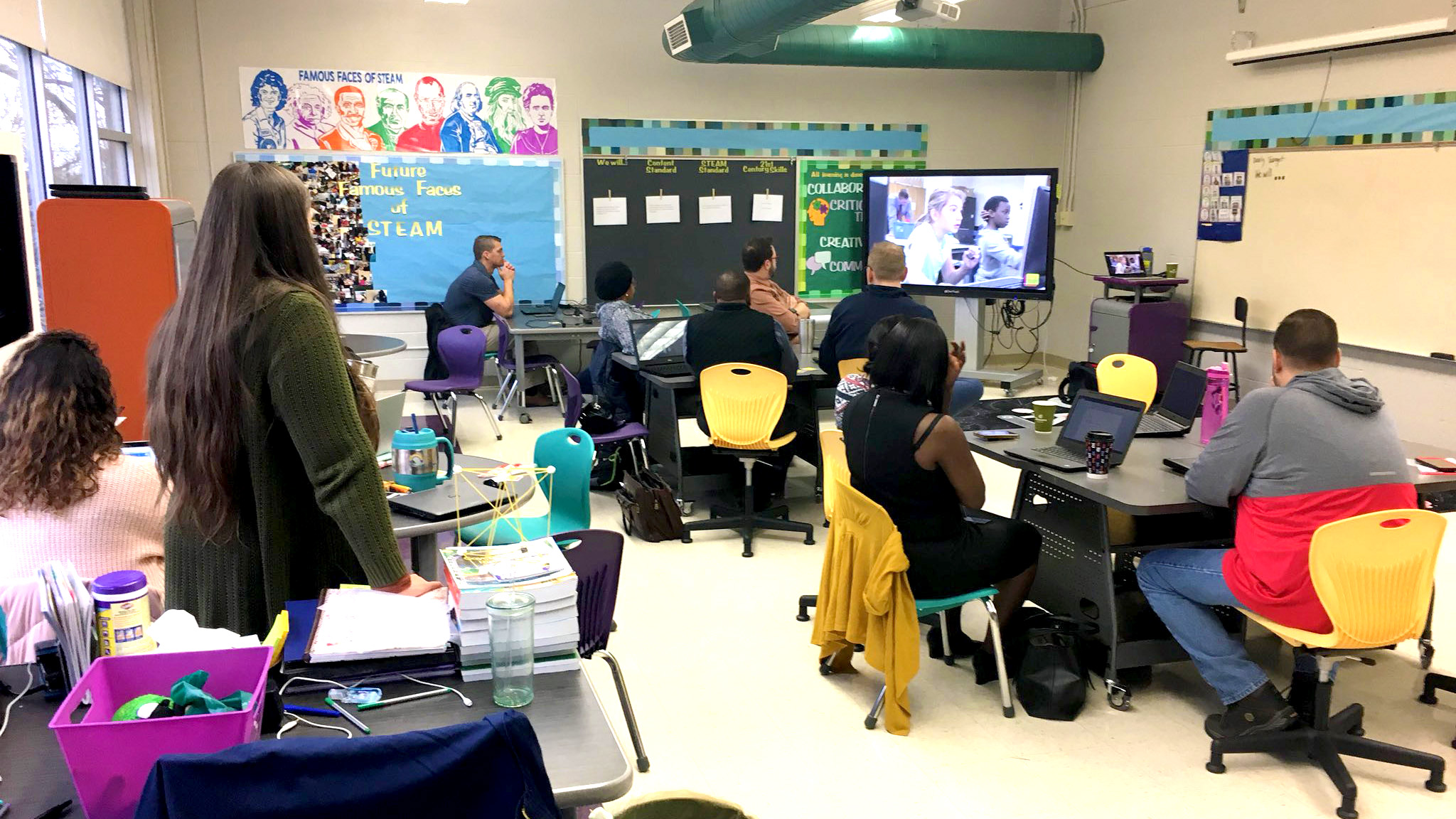
Research
Since its founding, FUSE has been focused on creating onramps into deeper STEAM engagement for all young people.
As a research project housed within Northwestern University’s School of Education and Social Policy, research is fundamental to our program.
Our research team uses an ethnographic approach (long-term studio observations, interviews, and website activity analysis) to study FUSE and its impact on youth, educators, and educational institutions. Since our research is ongoing, we adjust our program offerings and recommendations based on our findings.

When FUSE first launched, our research focused on questions like:
- What do students in FUSE learn, and how do they learn it?
- How does FUSE impact students’ interests in STEAM disciplines and fields?
- What are the different ways students learn with and from other students?
- How do students develop 21st-century skills in FUSE?
- How do students extend and go beyond FUSE challenges?

Over time, we’ve also asked questions about the role of teachers and educators,both in the FUSE classroom and beyond:
- What are the new roles that teachers play in FUSE classrooms?
- How do teachers adapt FUSE to fit their local needs and goals?
- How do these adaptations influence student learning experiences?
- What are the conditions that influence how FUSE as an educational innovation is spreading and taking root in schools across the US?

Most recently our research has explored questions including:
- How have teachers adapted FUSE to remote and hybrid learning?
- What impact have these adaptations had on students’ experiences of the program?
- How can we ensure equitable access to STEAM interest development and learning for all learners in FUSE?
Publications
Here are select publications detailing our research findings on FUSE.
From short excursions to long-term projects: agency, interest and productive deviations in school
Best practices for facilitation in a choice-based, peer learning environment: Lessons from the field. International Society of the Learning Sciences, 2020.
Kira & the spinners: Exploring the dilemmas of a structured-choice learning environment in a public school. International Society of the Learning Sciences, 2020.
In-FUSE-ing STEAM learning with spatial reasoning: Distributed spatial sensemaking in school-based making activities. Journal of Educational Psychology, Volume 112(3), 2020.
Choice and interest in designed learning environments: the case of FUSE Studios. Information and Learning Sciences, Volume, 121(3/4), 2020.
“Failure is just another try”: Re-framing failure in school through the FUSE studio approach. International Journal of Educational Research, Volume 99, 2019.
Girls as Experts, Helpers, Organizers, and Leaders: Designing for Equitable Access and Participation in CSCL Environments. International Society of the Learning Sciences, 2019.
Interest development and learning in choice-based, in-school, making activities: The case of a 3D printer. Learning, Culture and Social Interaction, 2018.
Exploring the Adoption, Spread, and Sustainability of an Informal STEAM Learning Innovation in Schools. International Society of the Learning Sciences, 2018.
FUSE: An Alternative Infrastructure for Empowering Learners in Schools. International Society of the Learning Sciences, 2016.
Research Support
Over the lifetime of the program, FUSE has been funded by several National Science Foundation Research Grants, including DRL-1348800, DRL-1433724, and DRL-1657438. We have also received several private foundation grants supporting research from The Nellie Mae Education Foundation.
